About
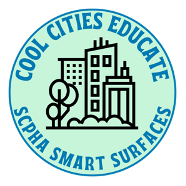 The South Carolina Public Health Association (SCPHA) is actively combating the urban heat island effect, as highlighted in the 2022 Heat Watch Report by CAPA Strategies, LLC. This report underscores the urgency of addressing the significant temperature gap of 18.5 degrees between downtown Columbia and its outskirts. The South Carolina Public Health Association (SCPHA) is actively combating the urban heat island effect, as highlighted in the 2022 Heat Watch Report by CAPA Strategies, LLC. This report underscores the urgency of addressing the significant temperature gap of 18.5 degrees between downtown Columbia and its outskirts.
Through partnerships with the American Public Health Association (APHA) and the Smart Surfaces Coalition, SCPHA's Smart Surfaces team is educating and advocating for innovative solutions like rain gardens, solar panels, and porous pavements in Columbia's urban areas.
Our initiatives are expected to yield significant outcomes, including increased green space, improved urban planning, heightened public awareness, and the cultivation of more Smart Surfaces. Through collaboration with partners such as the Smart Surfaces Coalition, the City of Columbia, and academic institutions, SCPHA is working towards a cooler, more sustainable urban environment.
Check out this video to learn more.
SCPHA Smart Surfaces Core Team Information
- Keisha Long, Project Manager
- Beata Dewitt, Project Coordinator
- Kathryn ‘Katie’ Schreiber, SCPHA Smart Surfaces Apprentice
For questions or inquiries, please contact: [email protected]
Partners
What are Smart Surfaces?

Click through the slideshow to learn more.
SCPHA Smart Surfaces Mini Grant Program
As cities grow and natural landscapes are replaced with impervious materials, temperatures rise, flooding increases, and the impacts of climate change become more severe. SCPHA’s Smart Surfaces initiative aims to reverse these trends by empowering communities to implement sustainable and climate-resilient solutions.
To strengthen community-led action, SCPHA has launched the Smart Surfaces Mini-Grant Program to support neighborhoods, community organizations, academic institutions, and local governments. This program provides funding and technical assistance for projects that promote the use of smart surfaces through research, education, planning, and on-the-ground implementation.
City of Columbia & Central Midlands Council of Governments
The City of Columbia’s Climate Protection Action Committee (CPAC), Central Midlands Council of Governments (CMCOG) and SCPHA hosted the Earth Day Climate Action Fair to engage citizens in climate action, increase their awareness of climate change and to promote participation for environmental and public health mitigation.
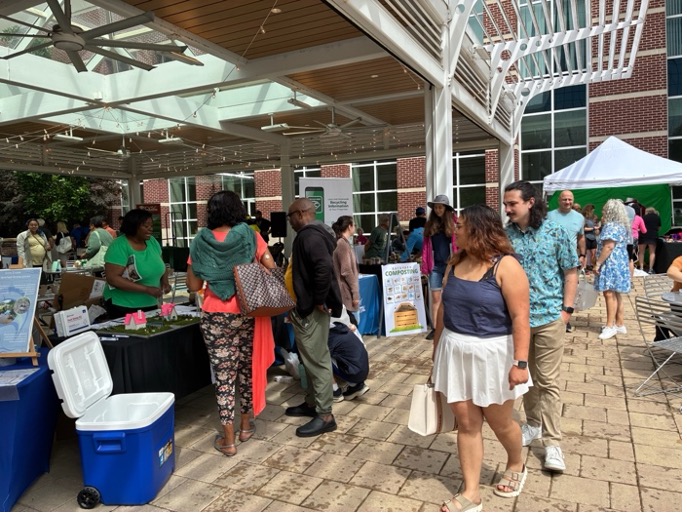 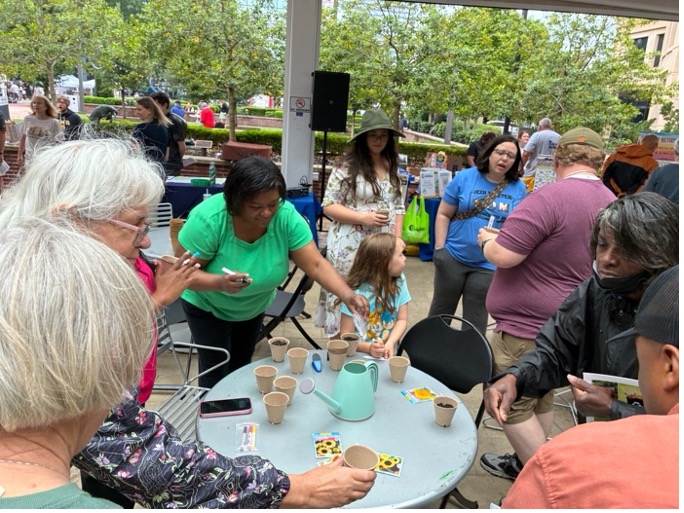 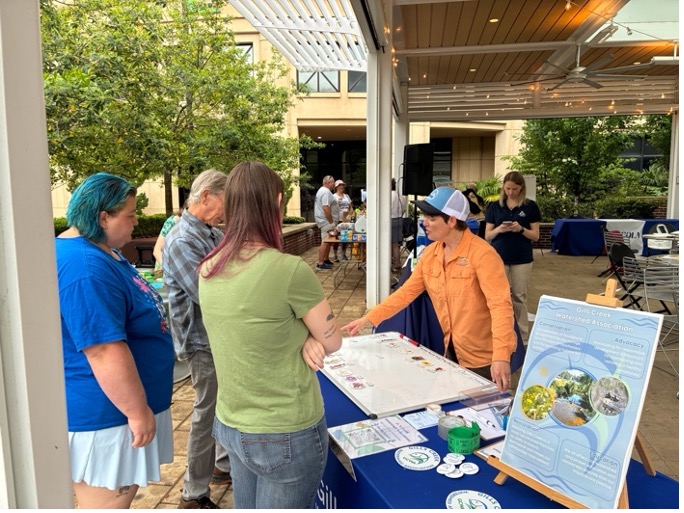
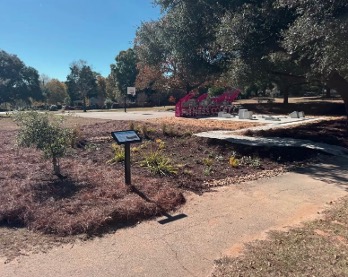
Gills Creek Watershed Association
The Gills Creek Watershed Association hosted a series of rain garden workshops as part of a hands-on community education program. This initiative empowered residents to install rain gardens at their homes and public spaces. The workshops focused on addressing stormwater pollution, reducing urban heat, and increasing native vegetation within the Gills Creek Watershed.
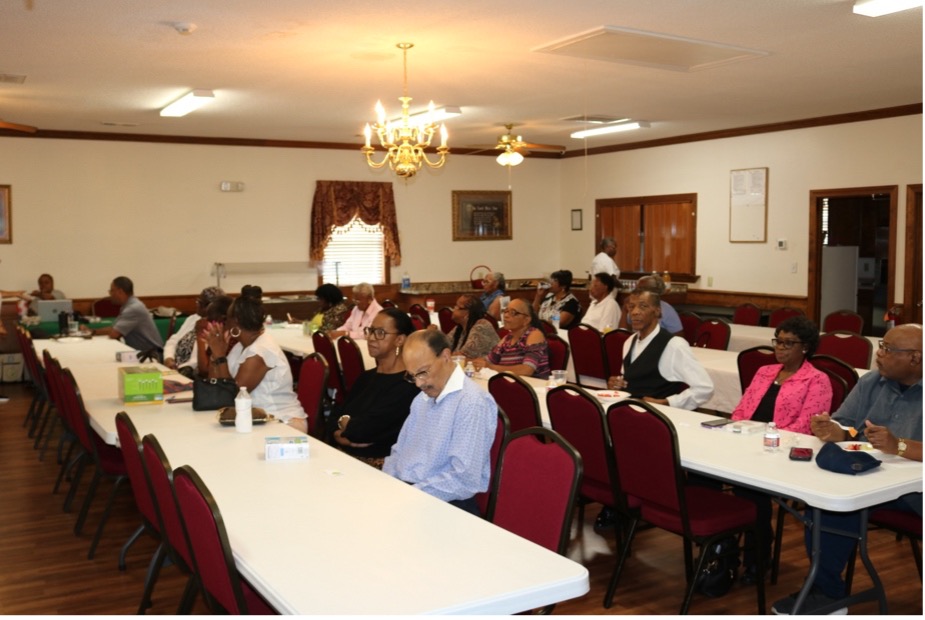
North Monticello Community Outreach
The faith-based organization North Monticello Community Outreach (NMCO) educated the Crane Creek community about urban heat islands and the importance of energy-efficient tools to help mitigate heat waves. After conducting an energy audit for Temple Zion Baptist Church, which serves as the operational hub for NMCO, the organization retrofitted the church's appliances and lighting. Additionally, members of Temple Zion Baptist Church had the opportunity to engage with Dominion Energy to learn more about their Neighborhood Energy Efficiency Program (NEEP).
South Carolina Energy Justice Coalition
The Smart Surfaces Cool and Colorful Corridors Project, led by the South Carolina Energy Justice Coalition, combines climate-smart art with urban greening to reduce surface and ambient temperatures at Lower Richland High School. Designed by local artist Mark Dreher, the mural features thermal-regulating paint composed of reflective and solar-resistant coatings. This mural is paired with native plants to create visually vibrant, cooler microclimates in the school's outdoor classroom.
The mural was created in honor of Lower Richland High School's centennial celebration and the proclamation of September 24th as Energy Justice Day in Richland County, raising awareness about the disparities in access to clean, affordable energy throughout South Carolina.
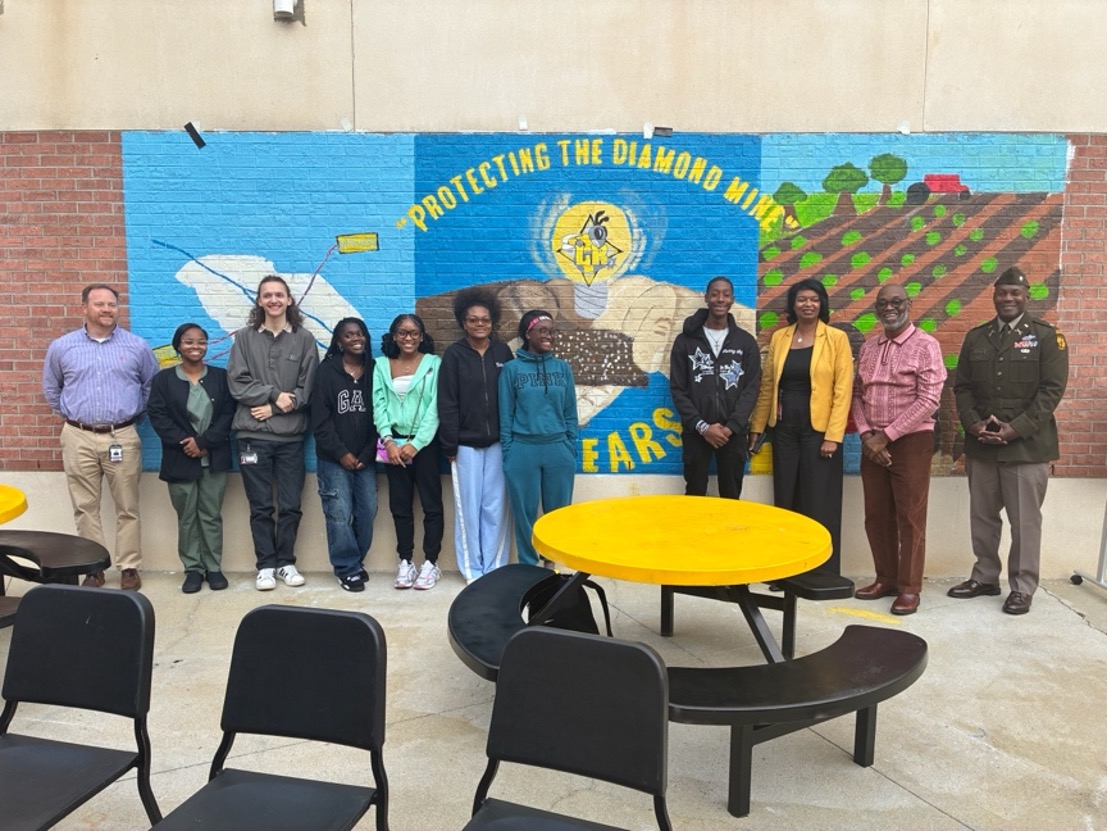 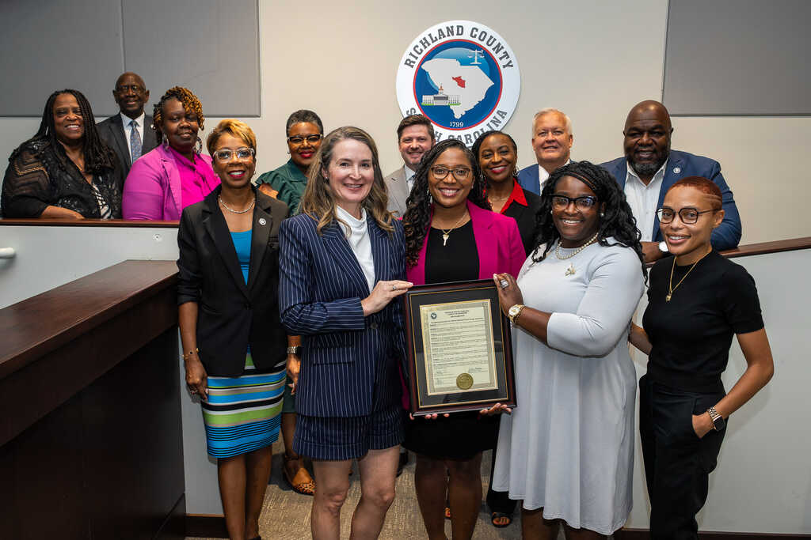
University of South Carolina (Madison Nordberg - Department of Geography)
This master's thesis aimed to investigate public perceptions of heat messaging issued by the National Weather Service (NWS) in the Columbia, SC area. The project sought to understand how individuals interpret these messages and how they can be tailored to meet the specific needs of local communities better.
By gathering and analyzing data on summer temperature trends and drawing on insights from key decision-makers, comprehensive resources were developed to bridge the gap between government advisories and community needs. Ultimately, this provided stakeholders in Columbia with evidence-based recommendations, enabling them to more effectively educate, support, and protect their communities from the health impacts of extreme heat.
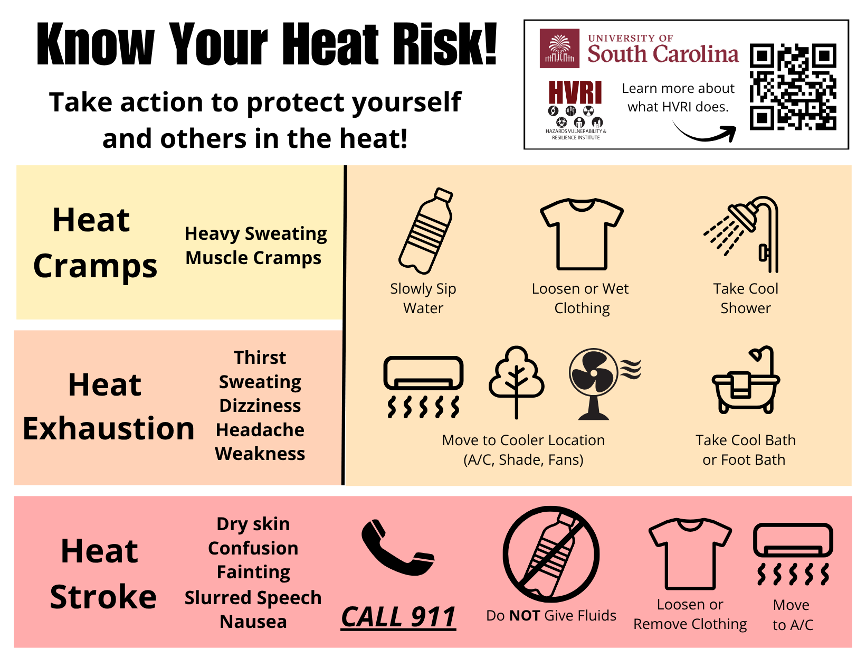
University of South Carolina (Olarewaju 'Ola' Omomeji and Benjamin Marosites - Department of Geography)
This project quantified the effects of heat stress in the City of Columbia. Data collection included temperature and humidity readings along various routes representing different land uses within Columbia, as the study focused on the heat index as the primary metric for assessing heat stress. Temperature and humidity data were used to calculate the heat index for each area. This metric is utilized by the National Weather Service to issue heat advisories.
Outreach
SCPHA Annual Conference
 The South Carolina Public Health Association (SCPHA) envisions a cooler Columbia through the Smart Surfaces project. At the SCPHA Annual Conference, the SCPHA Smart Surfaces Team served as exhibitors, educating attendees about the advantages of smart surfaces for both health and the environment. The South Carolina Public Health Association (SCPHA) envisions a cooler Columbia through the Smart Surfaces project. At the SCPHA Annual Conference, the SCPHA Smart Surfaces Team served as exhibitors, educating attendees about the advantages of smart surfaces for both health and the environment.
To address extreme heat, the Smart Surfaces Team provided protective gear for 400 participants for the SCPHA Annual Conference: sunglasses, sunscreen, and mosquito repellant bracelets.
SCPHA Focus Groups
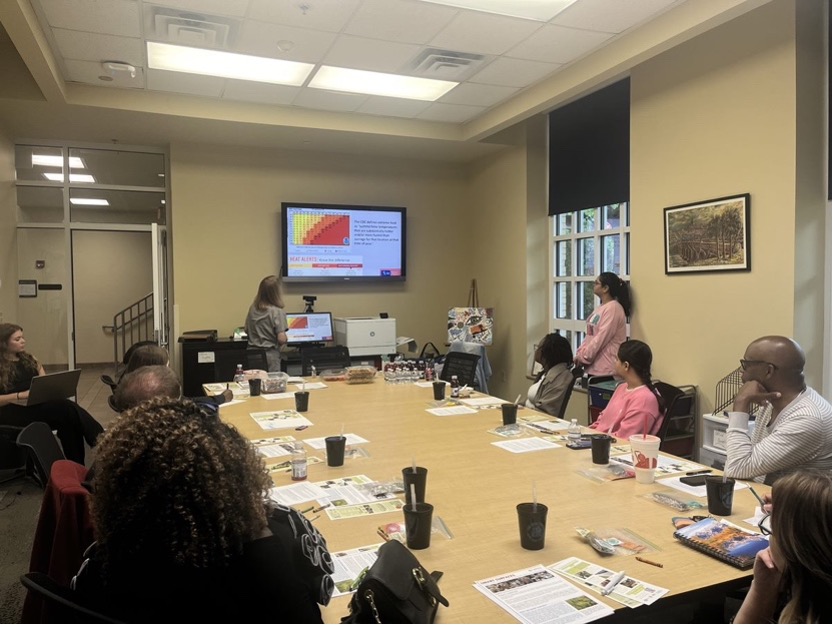 The Smart Surfaces Team at the South Carolina Public Health Association (SCPHA) launched a series of focus groups to tackle the urgent problem of extreme heat in Columbia. Our goal is to explore the firsthand experiences and viewpoints of Columbia residents regarding urban heat islands and their impact on the environment and public health. Furthermore, we aim to gauge residents' knowledge and attitudes toward innovative smart surface solutions like solar panels, rain gardens, and porous pavements, assessing their perceived effectiveness in addressing the challenges presented by extreme heat. The Smart Surfaces Team at the South Carolina Public Health Association (SCPHA) launched a series of focus groups to tackle the urgent problem of extreme heat in Columbia. Our goal is to explore the firsthand experiences and viewpoints of Columbia residents regarding urban heat islands and their impact on the environment and public health. Furthermore, we aim to gauge residents' knowledge and attitudes toward innovative smart surface solutions like solar panels, rain gardens, and porous pavements, assessing their perceived effectiveness in addressing the challenges presented by extreme heat.
The first focus group took place on April 9th at the University of South Carolina Office of Sustainability. Participants discussed cooling strategies, the impact of zoning and urbanization projects on heat, energy cost burdens, and the health effects of heat on the body. The consensus of the focus group was that local and city-level attention should be directed toward addressing the adverse impacts of rising and prolonged temperatures.
SCPHA Smart Surfaces Action Reports
T
Beat the Heat – Plant a Tree Campaign
 The University of South Carolina found that between 2005 and 2019, tree canopies decreased due to urban development and the non-replacement of trees on private properties. Trees and tree canopies are essential for reducing extreme heat, improving health by reducing stress and heart and respiratory illnesses. Tree canopies are also beneficial to the environment by providing cleaner air, supporting pollinators, having economic value, and contributing to the overall well-being of individuals and communities. The University of South Carolina found that between 2005 and 2019, tree canopies decreased due to urban development and the non-replacement of trees on private properties. Trees and tree canopies are essential for reducing extreme heat, improving health by reducing stress and heart and respiratory illnesses. Tree canopies are also beneficial to the environment by providing cleaner air, supporting pollinators, having economic value, and contributing to the overall well-being of individuals and communities.
A study by the University of South Carolina and Benedict College revealed that areas in Columbia with less tree canopy experience higher heat levels, leading to a heat island effect. According to a 2022 study by USC and NOAA, there is a 10-degree temperature difference between areas with tree canopies and heat islands. Communities within the City of Columbia with less tree canopy are in the 98th percentile nationally for asthma and respiratory illness.
To address extreme heat issues and limited tree canopies, The City of Columbia and Columbia Green have initiated the Beat the Heat - Plant a Tree Campaign. This joint effort aims to plant trees on private property at no cost over the next five years in Columbia. The Campaign began with a luncheon, one of twenty events planned to educate residents on planting and caring for trees on their property. The Smart Surfaces Team provided raffle prizes and shared outreach materials on smart surface methods such as trees, urban meadows, and rain gardens to help manage extreme
Central Midlands Council of Government awarded Climate Pollution Reduction Grant for Municipal Solar and Smart Surfaces Projects in South Carolina

The Central Midlands Council of Governments in South Carolina has been awarded approximately nine million dollars by the Environmental Protection Agency (EPA) through the Climate Pollution Reduction Grant (CPRG) Program. This funding will support initiatives to reduce greenhouse gas emissions and benefit low-income and disadvantaged communities (EPA, 2024). The projects will include municipal solar and smart surfaces initiatives in the Midlands. The South Carolina Public Health Association has also expressed its support for the CPRG Program and plans to collaborate with the Central Midlands Council of Governments on community engagement and workforce development training for climate-resistant projects.
SCPHA Tree - Planting Event
The SCPHA Environmental Health Section hosted a Tree-Planting Event that involved students from the University of South Carolina's Sustainable Carolina and Office of Sustainability, along with representatives from the City of Columbia. Beck Weston, the City of Columbia's Reforestation Program Coordinator, shared valuable information about the three Overcup Oak trees that were planted in Martin Luther King Jr. Park. He emphasized that these oaks can support over 100 pollinators, which contributes positively to the local ecosystem.
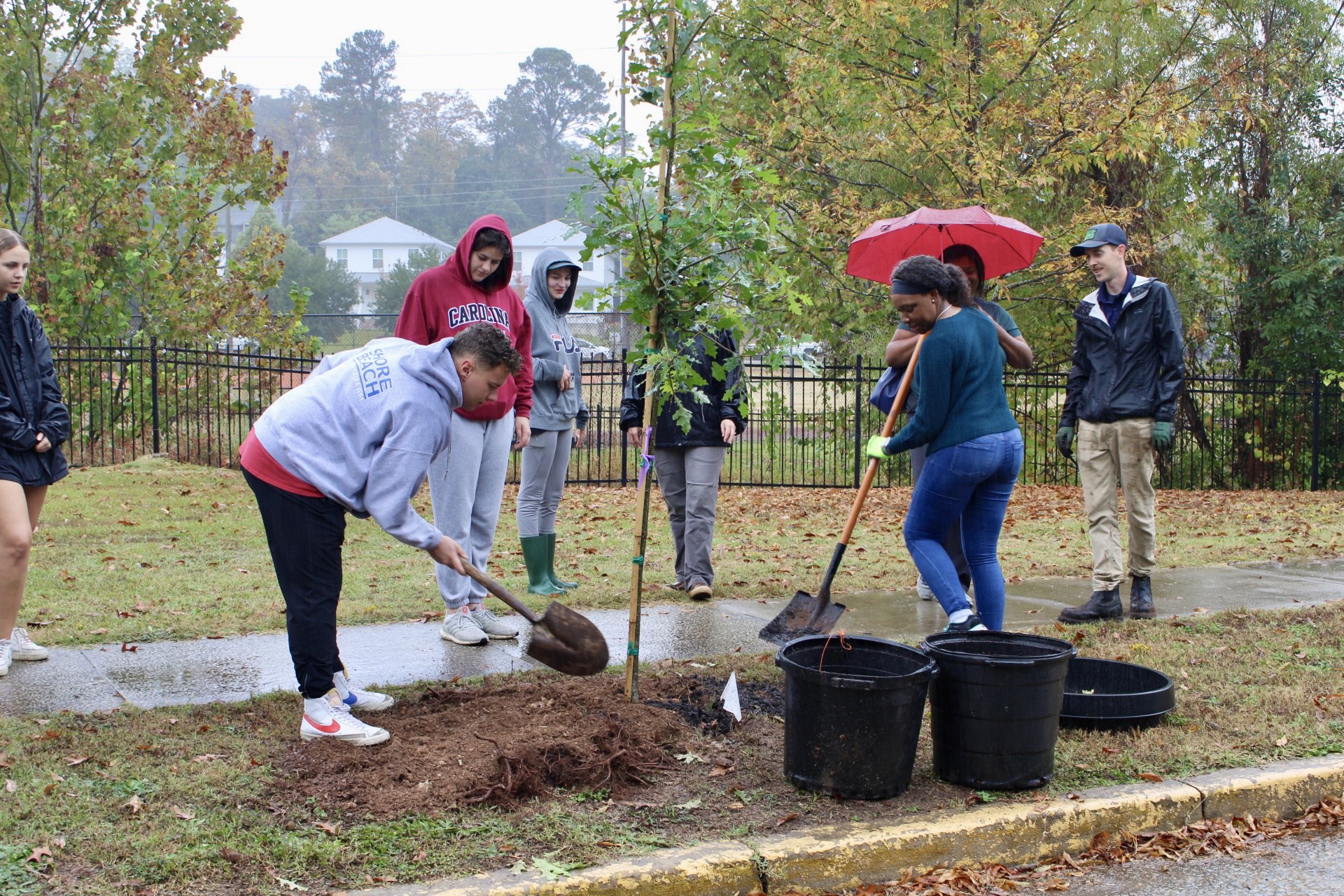 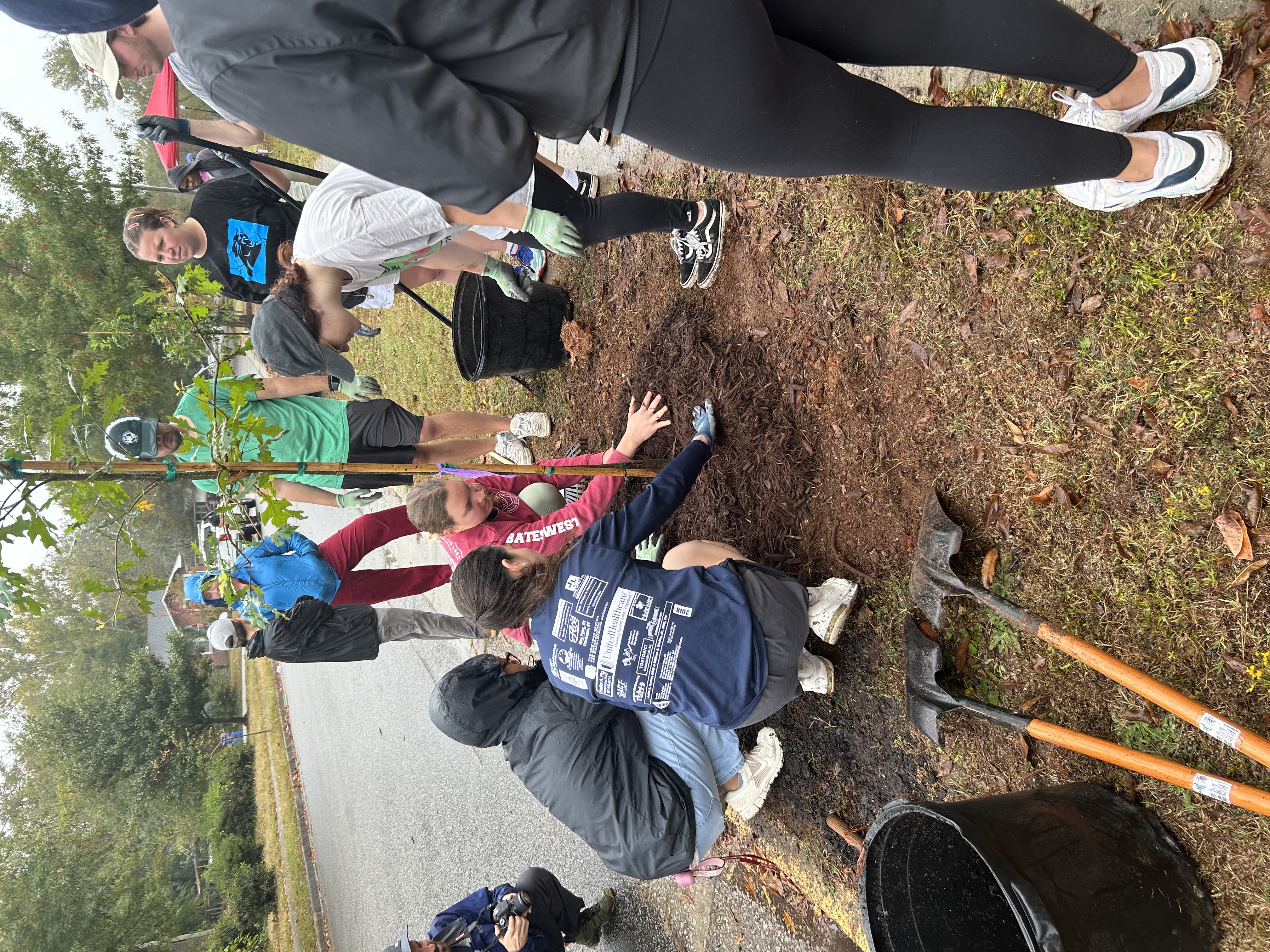
Gills Creek Watershed Association's Rain Garden Workshop
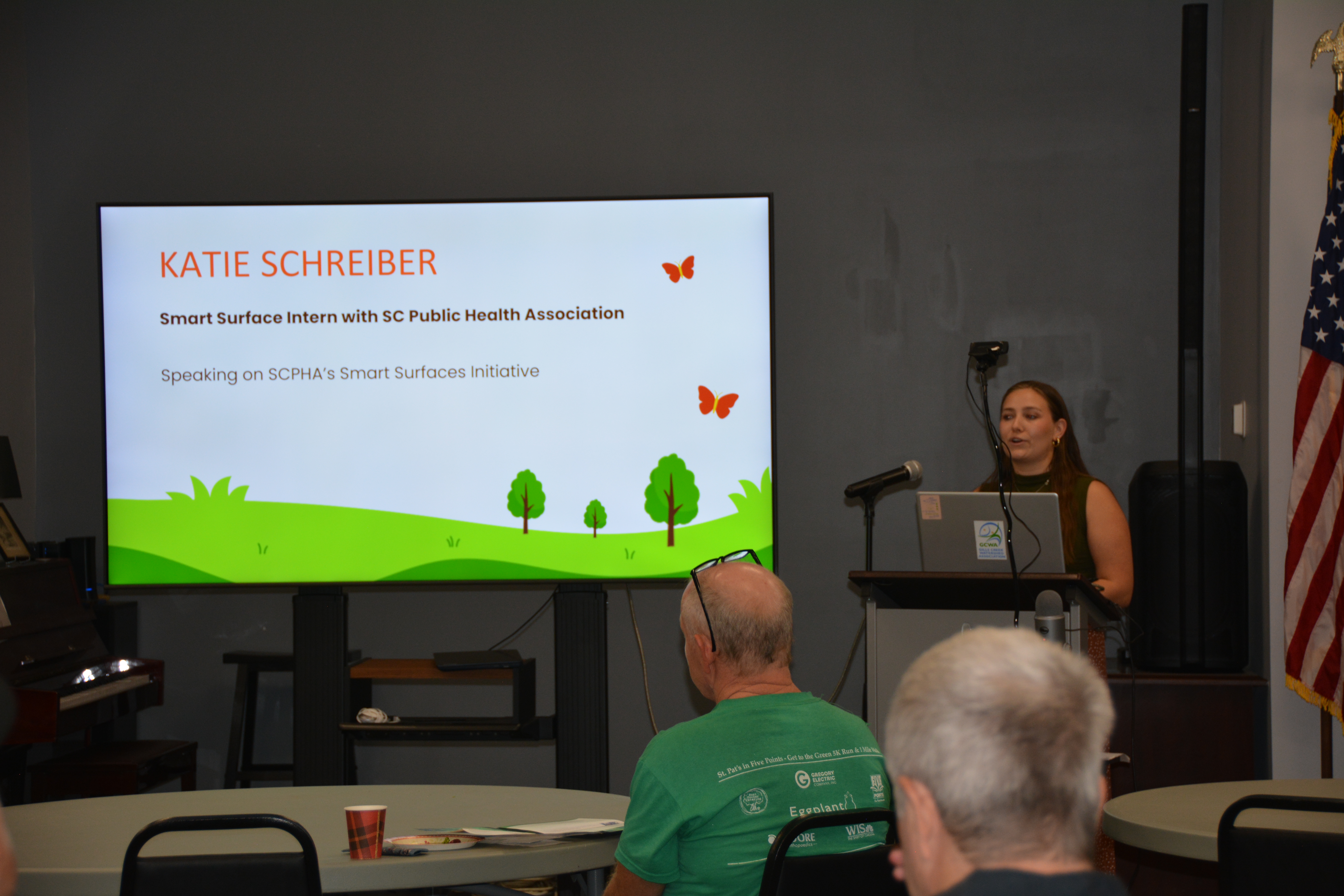 The Gills Creek Watershed Association launched its first Rain Garden Workshop, which marks the beginning of a series aimed at inspiring and educating our community about effective stormwater management. Participants learned about the purpose and benefits of rain gardens, including their role in improving water quality and supporting native plants and wildlife habitats. The Gills Creek Watershed Association launched its first Rain Garden Workshop, which marks the beginning of a series aimed at inspiring and educating our community about effective stormwater management. Participants learned about the purpose and benefits of rain gardens, including their role in improving water quality and supporting native plants and wildlife habitats.
Katie Schreiber, SCPHA Smart Surfaces Apprentice, shared insights on innovative stormwater management solutions, including rain gardens, bioswales, urban meadows, trees, and permeable pavements. These smart surface techniques enhance flood retention and water quality while promoting sustainable practices.
Partners
News Releases
Federal Action Towards Extreme Heat
Other Resources
|




 The South Carolina Public Health Association (SCPHA) is actively combating the urban heat island effect, as highlighted in the 2022 Heat Watch Report by CAPA Strategies, LLC. This report underscores the urgency of addressing the significant temperature gap of 18.5 degrees between downtown Columbia and its outskirts.
The South Carolina Public Health Association (SCPHA) is actively combating the urban heat island effect, as highlighted in the 2022 Heat Watch Report by CAPA Strategies, LLC. This report underscores the urgency of addressing the significant temperature gap of 18.5 degrees between downtown Columbia and its outskirts.






 The South Carolina Public Health Association (SCPHA) envisions a cooler Columbia through the Smart Surfaces project. At the SCPHA Annual Conference, the SCPHA Smart Surfaces Team served as exhibitors, educating attendees about the advantages of smart surfaces for both health and the environment.
The South Carolina Public Health Association (SCPHA) envisions a cooler Columbia through the Smart Surfaces project. At the SCPHA Annual Conference, the SCPHA Smart Surfaces Team served as exhibitors, educating attendees about the advantages of smart surfaces for both health and the environment.  The Smart Surfaces Team at the South Carolina Public Health Association (SCPHA) launched a series of focus groups to tackle the urgent problem of extreme heat in Columbia. Our goal is to explore the firsthand experiences and viewpoints of Columbia residents regarding urban heat islands and their impact on the environment and public health. Furthermore, we aim to gauge residents' knowledge and attitudes toward innovative smart surface solutions like solar panels, rain gardens, and porous pavements, assessing their perceived effectiveness in addressing the challenges presented by extreme heat.
The Smart Surfaces Team at the South Carolina Public Health Association (SCPHA) launched a series of focus groups to tackle the urgent problem of extreme heat in Columbia. Our goal is to explore the firsthand experiences and viewpoints of Columbia residents regarding urban heat islands and their impact on the environment and public health. Furthermore, we aim to gauge residents' knowledge and attitudes toward innovative smart surface solutions like solar panels, rain gardens, and porous pavements, assessing their perceived effectiveness in addressing the challenges presented by extreme heat.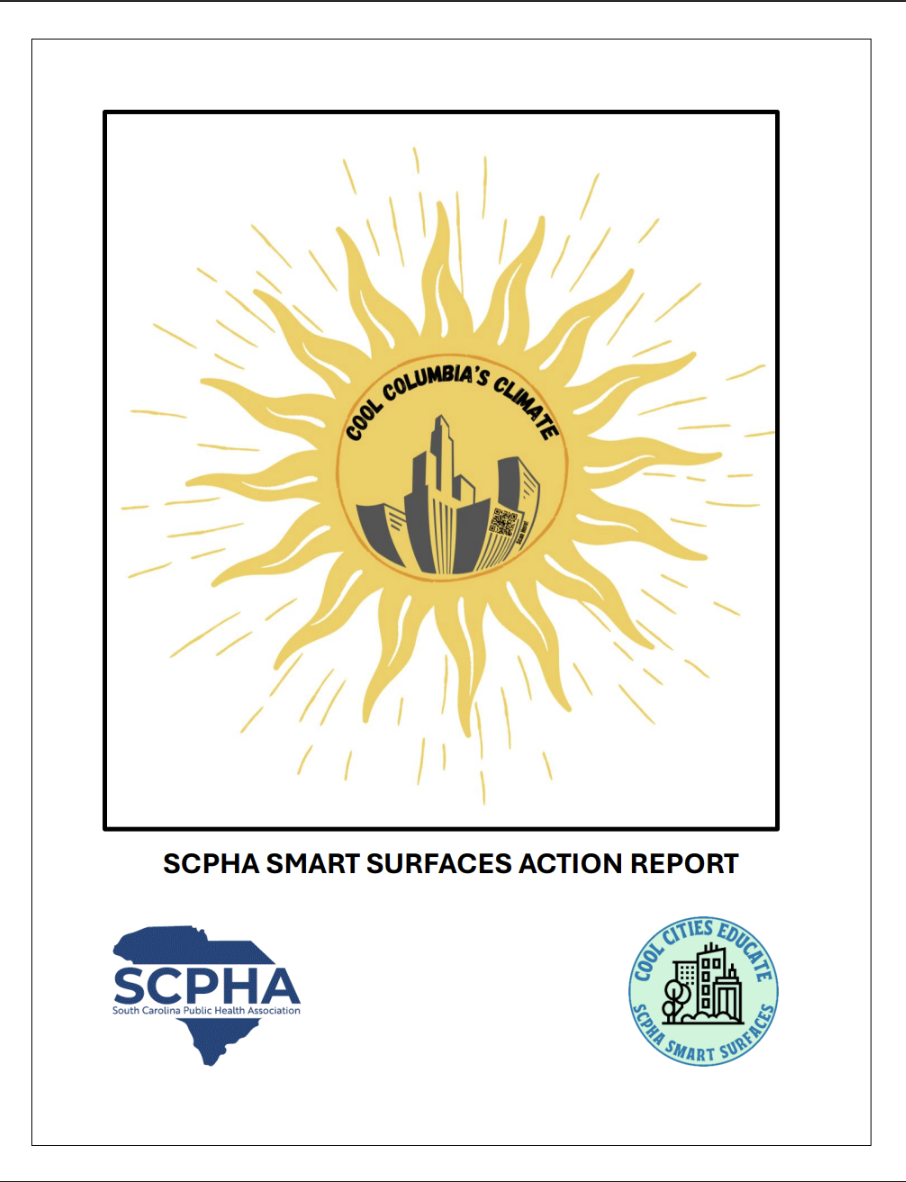
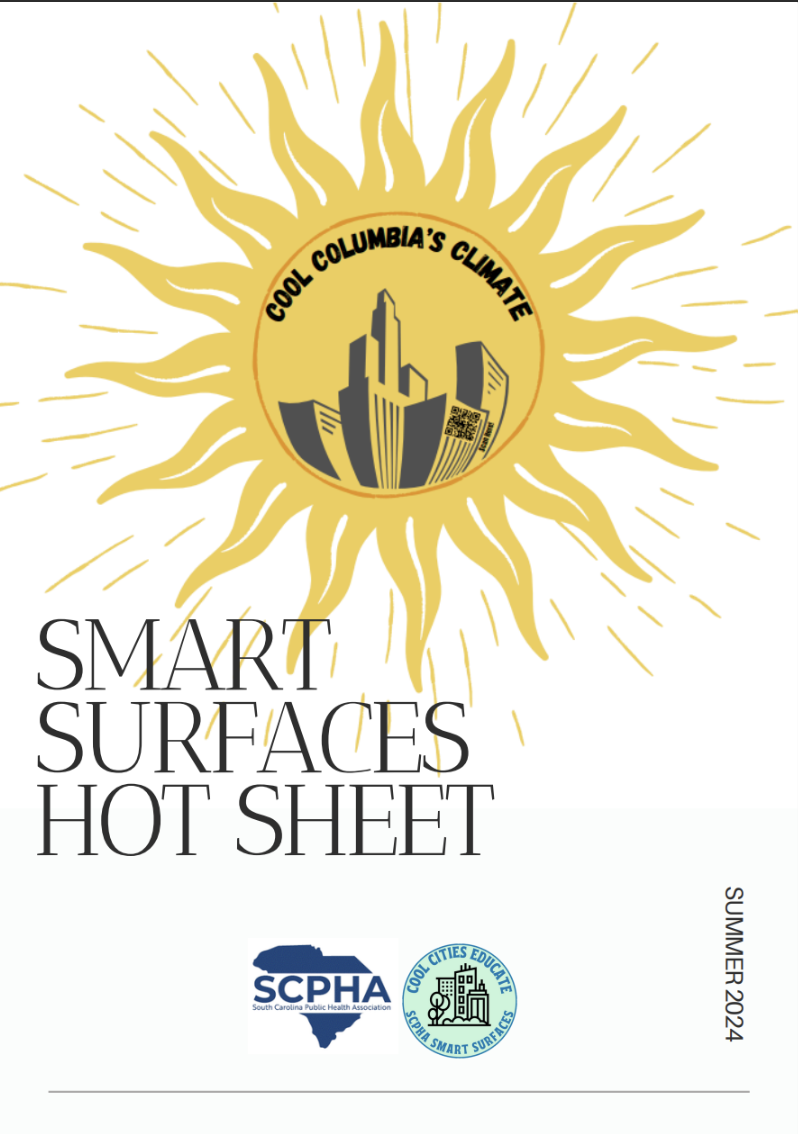
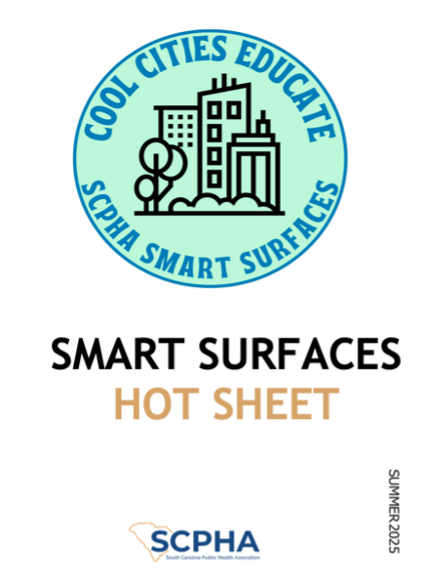
 The University of South Carolina found that between 2005 and 2019, tree canopies decreased due to
The University of South Carolina found that between 2005 and 2019, tree canopies decreased due to 


